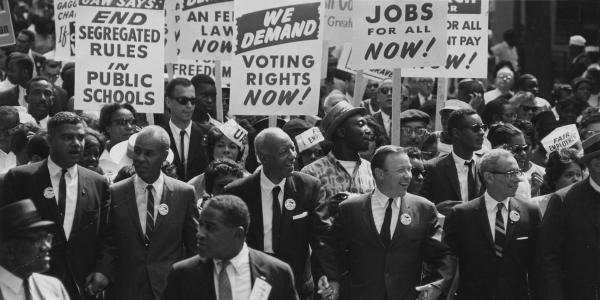Civil Society Brunch: "Respect and the Challenge of Equality"
The Civil Society Initiative at Washington University in St. Louis will host a public lecture (with brunch) featuring Jeff Spinner-Halev, Kenan Eminent Professor of Political Ethics at the University of North Carolina at Chapel Hill, and Elizabeth Theiss-Morse, Willa Cather Professor of Political Science at the University of Nebraska-Lincoln. They will speak on "Respect and the Challenge of Equality"; an abstract is below.
All are welcome; please RSVP below if you plan to attend.
This event is co-sponsored by the Frick Initiative and the Weidenbaum Center on the Economy, Government, and Public Policy.
Abstract: Respect is in trouble. Many Americans think that respecting other citizens is a virtue of a democratic society, yet many struggle to respect opposing partisans. It is especially liberal citizens, who hold respect as central to their robust view of democratic equality, who struggle the most to grant respect to others. This presentation is based on a book that brings together a political theorist and a political psychologist to examine democratic respect through national surveys, focus groups, survey experiments, and political theory. Democrats and Republicans are less divided than many believe, but they alienate one another because they moralize different issues. Liberals moralize social justice, conservatives champion national solidarity, and this worldview divide makes it difficult to respect anyone who disagrees. While respect is both far-reaching and vital to a democratic system, it is much harder to grant than many theorists recognize. If people believe that achieving social justice or national solidarity demands action from all Americans, then they readily disrespect anyone who shirks their collective responsibility. Our presentation will examine the importance of respect, the tensions between justice and respect, and a theoretical path forward that is challenging but far from impossible for political theorists and citizens to traverse.
RSVP


